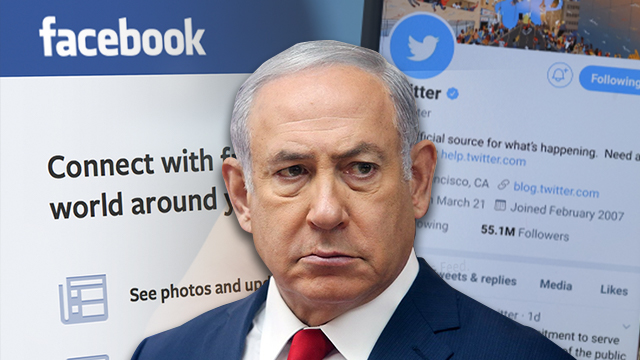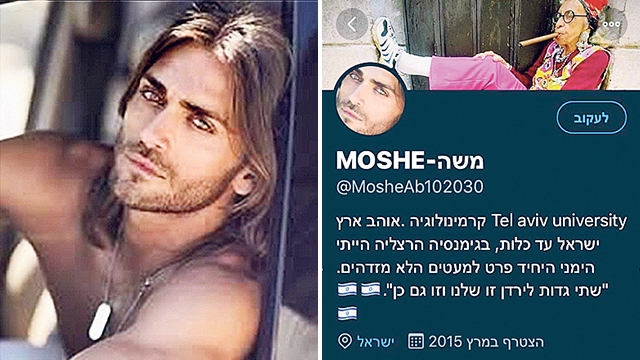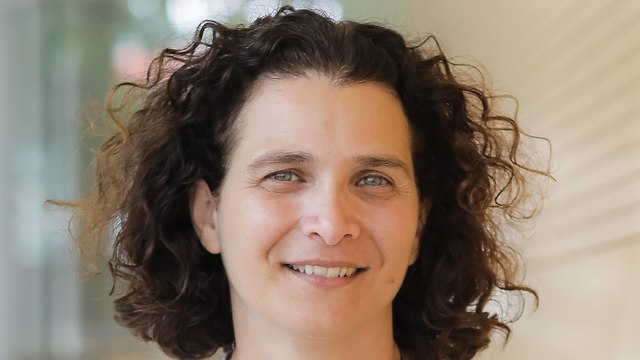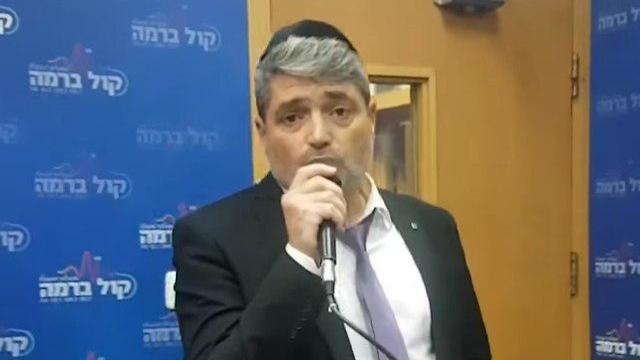
According to the findings of the Big Bots Project, this network has posted more than 130,000 times in Hebrew on Facebook and Twitter - posts that have had 2.5 million hits in Israel. These posts have the sole purpose of praising Netanyahu and spreading false information about his rivals, primarily his main challenger Benny Gantz, the former IDF chief who leads the Blue and White Party.
One of these Twitter accounts is operated by "Moshe", whose online activity went from 16 tweets in the first three months of 2018 to 2,856 tweets in the same period of 2019, at the height of the election campaign. The photo of the handsome young man that accompanies the "Moshe" account actually belongs to a Greek model named Theo Theodoridis.
"Moshe" is just one of hundreds that form a network of fake accounts, operating in synchronicity, echoing the Likud's political messaging and on more than one occasion spreading malicious propaganda, lies and slander against the media and those perceived to be enemies of Netanyahu.
For example, one of the accounts posted a fake claim that Gantz was a rapist, a post that was then shared online by numerous others in the network.
The report does not identify a direct link between the network and the Likud or any of its staff. It says, however, that the network's activity raises suspicions of serious criminal offenses, including violations of the Election Law, campaign financing, privacy laws, income tax and more.
Prof. Karine Nahon, president of the Israel Internet Association, says that the network of fictitious users is aimed at swaying public opinion and influence voters.
"Fake news has a far more rapid, wide and varied potential for dissemination than the news that contradicts it and seeks to present reality. As such, there is a fear that this will adversely impact the fair democratic process. "
According to the study's researchers, at the heart of the network is a single Twitter account operated under the user name "Bond." The account, which is linked to all of the other accounts in the network, uses the photo, email and personal information of one Yitzhak Haddad - a self-described "undercover activist" from Ashdod in southern Israel.
Haddad told a private investigator that he was "making videos and all sorts of beautiful things that are going up." When asked whether this work was funded, Haddad said yes.
Asked how much money had been invested in the operation of the network, Haddad said: "I don't want to say tens of millions (of shekels), but a lot of money has been invested."
Hadad also admitted that he was connected to "very senior people" in the Likud.
In a telephone conversation Sunday afternoon, the private investigator asked Yonatan Orich, one of the Likud campaign managers and Netanyahu advisor, if he knew and worked with Haddad, and Orich said yes. He later said that he knew Haddad "only from Facebook" and had never met him.
The Likud said in response: "The Likud is not connected in any way to the network to which you refer. The Likud does not operate any network of bots, avatars, fake profiles and so on. The Likud is almost the only party that does not use such methods."




















